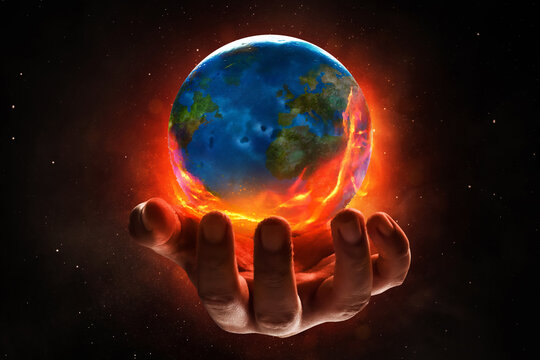Introduction
Climate change, a term often heard but not always fully understood, refers to long-term changes in temperature, precipitation, and other atmospheric conditions on Earth. The scientific community is in broad agreement that the Earth’s climate is changing, primarily due to human activities. This article aims to explore the causes, evidence, and impacts of climate change, as well as discuss mitigation and adaptation strategies.
Section 1: Causes of Climate Change

Greenhouse gases, including carbon dioxide (CO2), methane (CH4), and nitrous oxide (N2O), play a crucial role in regulating the Earth’s temperature. Human activities, such as the burning of fossil fuels for energy, deforestation, and industrial processes, have significantly increased the concentrations of these gases in the atmosphere. These elevated levels enhance the natural greenhouse effect, trapping more heat and leading to global warming.
While natural factors like solar radiation and volcanic activity contribute to climate variability, the current trend of rapid warming is primarily attributed to human-induced activities. The intricate interplay between these factors underscores the complexity of the Earth’s climate system.
Section 2: Evidence of Climate Change

The signs of climate change are evident in various aspects of the Earth’s system. Over the past century, global temperatures have been rising, with the last few decades witnessing accelerated warming. This warming is accompanied by the melting of ice caps and glaciers, contributing to rising sea levels. The impacts are not confined to polar regions; they are felt worldwide, with changes in precipitation patterns, an increase in extreme weather events like hurricanes and heatwaves, and disruptions to ecosystems.
Scientific measurements, including satellite observations and climate models, provide a comprehensive picture of these changes. The Intergovernmental Panel on Climate Change (IPCC) compiles and analyzes these data, producing reports that serve as crucial resources for understanding the current state of the climate.
Section 3: Impacts of Climate Change

The consequences of climate change are multifaceted, affecting both the environment and human societies. Loss of biodiversity and alterations to ecosystems are direct outcomes of changing temperatures and habitats. The human toll includes rising sea levels displacing coastal communities, increased frequency of extreme weather events leading to more frequent and severe natural disasters, and threats to food and water security.
Economically, climate change poses significant risks, with the potential for damage to infrastructure, increased healthcare costs due to climate-related illnesses, and challenges to agricultural productivity. Vulnerable populations, often with limited resources, are disproportionately affected.
Section 4: Mitigation and Adaptation Strategies

Addressing climate change requires a two-pronged approach: mitigation and adaptation. Mitigation involves reducing or preventing the emission of greenhouse gases. Transitioning to renewable energy sources, improving energy efficiency, and afforestation initiatives are essential components of mitigation efforts. Global agreements like the Paris Agreement aim to unite countries in their commitment to limiting global temperature increases.
Adaptation involves adjusting to the unavoidable impacts of climate change. This includes developing resilient infrastructure, implementing sustainable agricultural practices, and enhancing water management strategies. International cooperation and technological innovations play key roles in both mitigation and adaptation.
Section 5: Climate Change Skepticism and Debunking Common Myths

While the overwhelming majority of climate scientists agree on the reality of climate change and its human causes, skepticism persists. Common myths, such as the idea that Earth’s climate has always changed or that natural factors are solely responsible, are debunked by scientific evidence. It is crucial to distinguish between skepticism based on scientific inquiry and misinformation that contradicts well-established facts.
Conclusion: The Urgency of Addressing Climate Change
In conclusion, climate change is a complex and urgent issue that requires a concerted global effort. The scientific evidence supporting human-induced climate change is robust, and its impacts are already being felt worldwide. By understanding the causes, evidence, and impacts of climate change, individuals, communities, and nations can work together to implement effective mitigation and adaptation strategies.
The urgency of addressing climate change cannot be overstated. Every action taken to reduce emissions, protect vulnerable communities, and promote sustainable practices contributes to a more resilient and sustainable future. It is a collective responsibility to safeguard the planet for current and future generations, and through informed action, we can strive to mitigate the impacts of climate change and build a more sustainable and resilient world.



